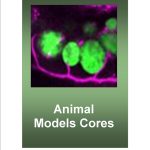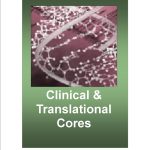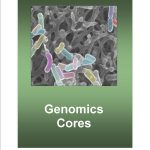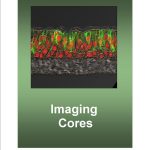UNC Clinical / Translational Core Facilities and Resources
Contents
- 1 Behavioral
- 2 Biobanking
- 3 Histology
- 4 Nutrition
- 5 Analytical Services
- 5.1 UNC CFAR Clinical Pharmacology & Analytical Chemistry
- 5.2 CFAR HIV/STD Laboratory Core
- 5.3 Developmental Neuroimaging Laboratory, Carolina Institute for Developmental Disabilities
- 5.4 The Biobehavioral Laboratory (BBL)
- 5.5 Metabolic Molecular Phenotyping Core (NORC)
- 5.6 Human Research Core
- 5.7 Immune Monitoring and Genomics Facility
- 5.8 Nanomedicines Characterization Core Facility (NCore)
- 6 Clinical Research Support
These pages list our core facilities by areas of focus. These are brief profiles of the cores; to find more detailed information on each core, including location, contact information, and equipment lists, please check out their facility overview in their listing in our searchable database.
The clinical/translational cores offer a large number of resources to investigators working specifically on correlative sciences as part of a clinical or translational program or on evaluations that focus on the use of human tissues. These include the very large NC TraCS program that provide critical infrastructure to a large number of clinical and translational efforts at UNC to specific cores that focus on behavior, nutrition, and human movement. Finally there is a significant focus on the collection and analysis of human cells, serum and tissues.
Behavioral
The Biobehavioral Laboratory (BBL)
The Biobehavioral Laboratory (BBL) focuses on supporting research that addresses the interface of biological and psychosocial factors that underlie individual responses to acute and chronic illness. The BBL specializes in non-invasive physiological measurement and instrumentation.
The lab comprises a behavioral observation research suite with six in-wall cameras and a monitoring room with video recording and editing software. The state-of-the-art sleep laboratory includes two fully equipped sleep rooms and with subject monitoring systems.
Biobanking
Biospecimen Processing Facility
The Biospecimen Processing Facility provides investigators with a centralized, cost-effective UNC facility to process biospecimens from population, clinical, and other studies. Our facility’s main emphasis is DNA/RNA extraction, however we also provide blood product separation and other non-tumor specimen processing
The laboratory supports individual investigator initiated large-scale clinical research as well as epidemiologic studies designed to help unravel the underlying relationships between genetics, the environment, behavior, and disease.
The UNC BSP Facility is a centralized, quality controlled and quality assured facility for the processing of human biospecimens. In addition to laboratory services, the facility provides a scientific resource for investigators seeking advice on study design including specimen collection and storage methods. The BSP has received IRB approval for its own uses and maintains a HIPPA secure facility at all times. The BSP core staff can also act as a liaison to other UNC core facilities.
Tissue Procurement Core Facility (TPF)
Tissue Procurement Core Facility (TPF) supports and enhances cancer-related translational, clinical, population and basic science research by providing UNC Lineberger Comprehensive Cancer Center members with a centralized, coordinated, quality-controlled, quality-assured facility for procurement, processing, storage, and distribution of normal and malignant human specimens. Included in these services is the processing of blood for serum, plasma, packed red blood cells, and buffy coats. Additional biospecimens collected and stored by the facility, especially in support of epidemiology studies, include fat biopsies, toenails, urine, and other body fluids as defined by the research study.
Pathology Services Core (PSC)
Pathology Services Core (PSC) provides access to UNC Hospitals’ repository of human tissue samples, given appropriate IRB and HIPAA approvals. The PSC provides the only centralized facility on campus for the acquisition of digital slide images and for qualitative and quantitative analyses of fresh, frozen and formalin-fixed paraffin embedded tissues using morphology-based assays for DNA, RNA, and proteins.
MLI Tissue Procurement and Cell Culture Core
The MLI Tissue Procurement and Cell Culture Core provides standardized cell cultures for CF research. The TPC serves as a central source of normal, CF and disease control cells, tissues and fluids for a wide array of uses. The core currently offers seven different cell types and three different types of growth media
Histology
Pathology Services Core (PSC)
Pathology Services Core (PSC) provides access to UNC Hospitals’ repository of human tissue samples, given appropriate IRB and HIPAA approvals. The PSC provides the only centralized facility on campus for the acquisition of digital slide images and for qualitative and quantitative analyses of fresh, frozen and formalin-fixed paraffin embedded tissues using morphology-based assays for DNA, RNA, and proteins.
CGBID Histology Core
CGBID Histology Core provides a full range of histology services, encompassing routine and specialized grossing, tissue processing, paraffin embedding, microtomy, H&E and special staining, and immunohistochemistry. Consultations are also available. CGIBD members receive priority.
Histology Research Core Facility
The Histology Research Core Facility serves the histology needs of the UNC community and beyond.
We have experience with various organisms including, but not limited to mouse, rat, pig, cat, dog, fish, human and primate. Additionally, we have provided histology services for plants and invertebrates such as coral, caterpillars and even stinkbugs!
Research applications: We take pride in providing top quality paraffin and frozen sectioning, special staining, and both fluorescent and chromogenic single- and multi-label immunohistochemistry. Furthermore, we recently added in situ hybridization using RNAscope and BaseScope technology to our list of services. Our lab houses an extensive slide catalogue for our customer’s use as positive and negative controls, provides access to HIER for antigen retrieval in conjunction with our IHC/IF services, and offers the CryoJane Tape Transfer system to improve morphology during frozen sectioning.
We offer all services at competitive rates with a quick turn-around time of typically within 2 weeks of sample submission. We are here to talk with you at any stage in the research process about your specific research aims and the best way to achieve the results you need.
Please explore our new website where you can find detailed information about all of our services, submission instructions, answers to frequently asked questions and more.
We are located in rooms 212, 213, 214, and 216 in Taylor Hall at 109 Mason Farm Rd Chapel Hill, NC 27514. We can be reached by phone at (919) 966-1202 or e-mail at hrc@med.unc.edu. Please contact us to discuss your specific research needs!
Instrumentation available: Leica 1950 Cryostats, LKB Rotary Microtome, LeicaRM2235 Rotary Microtome, eVos Microscope, RNAScope and HiPlex technology, CryoJane Tape Transfer System for the cryostat, Vibratome,
Eligible users: Any researchers at UNC or other academic institutions, and in industry.
Nutrition
Behavioral Assessment Sub-Core (NORC)
Behavioral Assessment Sub-Core (NORC) provides methodological resources and expertise for dietary intake and physical activity in the human population.
Services include: diet assessment using 24-hour recalls (NSDR and ASA24); food record analysis; menu analysis; user recipe analysis; development and administration of customized food frequency questionnaires; diet assessment training; physical activity assessment via interview or accelerometry; a metabolic kitchen for dietary studies; physical activity training; accelerometry and body composition (DXA, indirect calorimetry, PQcT, bodpod, peapod, anthropometrics, bioelectric impedance scale). In addition, the Core provides consultation, grant writing assistance, and data analysis for diet and physical activity assessments.
The Metabolic and Nutrition Research Core
The Metabolic and Nutrition Research Core specializes in the development and production of controlled nutrient meals for feeding studies. The Core is staffed by a registered dietitian and dietetic technicians all experienced in the production of controlled meals, recipes and oral food challenges for research studies. Food production occurs in a state inspected kitchen facility operated by UNC Health Care Food and Nutrition Services. The Core works closely with the Clinical and Translational Research Center (CTRC) to provide meals and other services to studies conducted at the CTRC. Services include consultation on study design and nutrition research methods, design of nutrient controlled meals and recipes, production of nutrient controlled meals, nutrient intake analysis, education material development, nutrition counseling, food record analysis, indirect calorimetry and anthropometric measurements. Meals can be served at the CTRC and other UNC campus sites, packed out for consumption at home or shipped to participant’s homes and other off-campus research sites.
Human Research Core
The Human Research Core at the Nutrition Research Institute in Kannapolis offers state-of-the-art resources and support for investigators from the initial phase of study designing through Human Metabolism and Body composition assessments, clinical laboratory and support services, preparation and delivery of precisely designed meals for study participants and interpretation of study results and evaluation of any potential side effects. Its goal is to provide human research investigators with multidisciplinary services and equipment in one location.
Analytical Services
UNC CFAR Clinical Pharmacology & Analytical Chemistry
UNC CFAR Clinical Pharmacology & Analytical Chemistry The goal of the UNC Center For Aids Research (CFAR) CPAC core is to provide the research community with the expertise and resources in study design, analytical chemistry, and data analyses to support innovative animal and human clinical pharmacology investigations.
All analyses are conducted in a CLIA-certified, state of the art analytical laboratory that includes high performance liquid chromatography with ultraviolet and mass spectroscopy detection.
Services include: Pharmacokinetic-pharmacodynamic analysis; development and validation of small molecule methods using LC/UV, LC/MS and LC/MS/MS in a wide variety of animal and human matrices; grants and clinical trials consultation and research support. We will provide you with advice on experimental design and the best methods to accomplish your objectives.
CFAR HIV/STD Laboratory Core
CFAR HIV/STD Laboratory Core offers services and collaborations to HIV researchers for their basic and clinical research projects. The Core provides a GCLP environment for specimen processing and testing.
The laboratory is equipped and experienced in the preparation and/or storage of tissues, cells or body fluids, the diagnosis and measurement of HIV and other STIs, and the assessment of soluble and/or cellular immune system components within each of these specimen types. Services include: Specimen processing and storage, provision of clinical specimens from HIV-positive and HIV-negative individuals, HIV diagnosis, HIV monitoring, HIV sequencing, STI diagnosis/screening, HLA typing, measurement of soluble biomarkers (ELISA, Luminex platform, ELISPOT), flow cytometry for phenotyping and functional analysis of immune cell populations, antibody analysis, and in vitro HIV assays for antiretroviral activity.
Developmental Neuroimaging Laboratory, Carolina Institute for Developmental Disabilities
Developmental Neuroimaging Laboratory, Carolina Institute for Developmental Disabilities provides consultation and support for all stages of design and implementation of neuroimaging studies, and provides access to well-established methods for the acquisition and analysis of MR data. The DNL is also responsible for the development of novel neuroimaging methods to insure the most technologically advanced and efficient data acquisition parameters that would also address particular challenges posed by studying immature of developing neural systems.
Brain imaging has become an important and indispensable tool for the non-invasive analysis of human brain function and structure. In particular, MRI is especially well suited for the study of children because it is non-invasive, does not involve radiation and therefore can be repeated within short periods of time, thus enabling longitudinal investigations.
The Biobehavioral Laboratory (BBL)
The Biobehavioral Laboratory (BBL) services include enzyme immunoassay analysis of salivary biomarkers, as well as serum/plasma biomarkers. Other biomarkers can be assayed upon request.
Metabolic Molecular Phenotyping Core (NORC)
The Metabolic Molecular Phenotyping Core (NORC) provides biochemistry methods and molecular biology techniques for nutrition research. The Core provides standardized, quality controlled biochemical, molecular biological, and cell-function assays centered around one-carbon metabolism & genetics, and offers access to modern techniques and equipment to be use in nutrition and obesity-related research
Human Research Core
The Human Research Core at the Nutrition Research Institute in Kannapolis, N.C., offers state-of-the-art resources and support for investigators from the initial phase of study designing through Human Metabolism and Body composition assessments, clinical laboratory and support services, preparation and delivery of precisely designed meals for study participants and interpretation of study results and evaluation of any potential side effects. Its goal is to provide human research investigators with multidisciplinary services and equipment in one location.
Immune Monitoring and Genomics Facility
The Immune Monitoring and Genomics Facility (IMGF) provides investigators with cellular immunology, molecular immunology, and immunogenomics services that can delineate interactions between the immune system and tumor tissues. The IMGF focuses on clinical trial correlative research studies but supports basic research studies as well. These studies include both FDA-approved government and industry-sponsored research.
Nanomedicines Characterization Core Facility (NCore)
The Nanomedicines Characterization Core Facility (NCore) provides comprehensive characterization of novel nanomedicines and nanomaterials. Services include physicochemical assays (ICP-MS, Nanosight, Capillary Electrophoresis, WES Simple Western Blotting, HPLC, FPLC, Thermogravimetric Analysis, GPC, Malvern Zetasizer, and more). Exosome isolation and characterization including size, size distribution, concentration, charge, markers expression, particle labeling. The Nanomedicines Characterization Core Facility (NCore) grants researchers an opportunity for in-depth characterization of nanomaterials and carrier-mediated agents (CMA) including: chemical composition, number average molar mass Mn, weight average molar mass Mw, polydispersity, molecular weight distribution, size, gyration radius, size distribution, shape, surface charge, count number of nanoparticles, solubility (second virial coefficient), thermal/oxidative stabilities, estimation of product lifetime, isotope analysis, analytical evaluation of nanoparticle encapsulated and released drug or agent stability and released rates, degree and rate of recognition of nanoparticles by mononuclear phagocyte system (MPS), UV/Vis spectroscopy, UV-temperature correlation, etc.
Research applications: Physicochemical characterization (PC) of nanomaterials offers a comprehensive body of information that can be used to predict behavior of the nanomaterials in biological environments both in vitro and in vivo. This information is essential in order to exercise tight control over inter-batch variations and maintain reproducibility of nanomaterials critical for their applications.
N-Core offers PC of various classes of nanomaterials such as:
- Polymer conjugates
- Polymeric micelles
- Liposomes
- Nanogels
- Polyion complexes of small drugs and biomacromolecules (proteins, DNA, and RNA)
- Inorganic/metal nanoparticles
- Bio-derived nanoparticles such as exosomes with protein and nucleic acid car
Instrumentation available: ICP-MS Perkin Elmer NexION 300d with autosampler, Capillary Electrophoresis Beckman Coulter PA 800 plus Pharmaceutical Analysis System, HPLC Agilent 1200 series, NTA Malvern NanoSight NS500, NTA and Zeta Potential meter Particle Metrix ZetaView QUATT, DLS Malvern ZetaSizer Nano ZS, TGA TD Thermogravimetric analyzer, Western Blot and Gel Imager Protein Simple FluorChem E Imager, Automated Western Blot Protein Simple WES, Freeze dryer (lyophilizer) LABCONCO, GPC Malvern Viscotek, FPLC AKTA.
Eligible users: Any researcher at UNC or other academic institutions, and industry.
Clinical Research Support
NC TraCS Clinical and Translational Research Center
NC TraCS Clinical and Translational Research Center offers investigators a variety of research support services, including access to inpatient and outpatient examination rooms, a staff of highly-skilled research professionals, an investigators laboratory, nutrition research support, and an oral health research facility. In addition, CTRC staff can assist you with study budgeting, letters of support, and research coordinator orientation.
NC TraCS Data and Analytics
NC TraCS Data and Analytics offers services to help investigators mine and manage large and diverse data sets using advanced statistical, mathematical and computational techniques.
Access clinical and administrative data from UNC Health Care systems:
* Data Management
* Curated Data Sets
Access fully-hosted, web-based data management services to support clinical trials and clinical & translational research studies.
Ensure high quality data capture and compliance.
Rapid Case Ascertainment
Rapid Case Ascertainment (RCA) facilitates cancer prevention and control research that requires early contact with patients. RCA provides support to study by leveraging the north Carolina Central Cancer Registry and local hospitals. The RCA collaboration facilitates rapid ascertainment of cases and identifying potential cases. This allows for researchers to contact patients in a timely manner for interviewing purposes and for biologic specimen collection.
Research Participant Registry Core, Carolina Institute for Developmental Disabilities
Research Participant Registry Core, Carolina Institute for Developmental Disabilities, supports research projects on developmental disabilities at UNC. UNC researchers who have been approved for IDDRC membership are eligible to access core services.
The Core assists with recruitment, public relations and referral source development, and grant preparation, and maintains confidential databases of people who want to be contacted about research studies at UNC-Chapel Hill, links eligible participants with research studies, and keeps registry members informed about the latest advancements in research at UNC.
Sim Center
The Multidisciplinary Simulation Laboratory, part of the UNC Department of Surgery, provides simulation training in surgical and medical procedures for resident physicians, medical students, physicians, nurses and surgical technologists. The center also hosts medical industry simulation training.
UNC Patient-Reported Outcomes Core (PRO Core)
UNC Patient-Reported Outcomes Core (PRO Core) is committed to bringing the patient’s voice into health care. PRO Core offers scientific consulting and statistical support, and hosts an electronic research data collection system that is tailored to support research involving patient-reported outcomes and other types of patient-generated health data. PRO Core’s electronic data capture system is suitable for both single-site and multi-site clinical studies. PRO Core frequently supports NIH and PCORI-funded trials evaluating novel interventions and the integration of patient-reported outcomes assessments into routine clinical care. Services include:
- Programming and customizing an electronic research data collection system (pro.unc.edu) that is tailored to your clinical research workflow. Our research data collection system offers numerous features, including full programmer-level support on system setup and design, workflow tailoring, and technical issues; design of electronic study forms with skip patterns, validations, and calculated scoring; multi-modal survey administration i.e. smart phone, tablet, laptop, interactive voice response (IVR), computer-assisted telephone interview (CATI), and paper entry; support for multiple languages; support for dyadic assessment; support for computer-adaptive testing (CAT) using item-response theory (IRT); support for complex data collection scheduling, i.e. longitudinal survey administration, repeating instruments, and time zones; workflows tailored to inpatient, outpatient, or community settings and populations with limited literacy and/or internet access; integration of wearables and IoT device data; interfacing with other clinical data collection platforms (e.g. Medidata Rave); real-time alerts based on participant responses; personalized reports for patients or clinicians; automated reminders for study staff and patients; dashboards and reports for monitoring data collection and survey completion; support for multi-site studies as a central data repository; support for pilot/feasibility studies, including support for iterative study design; and more.
- Scientific support on study design, selection of valid and reliable measures, optimal methods for administering surveys in your study population, guidance on data analysis; scientific review of research proposals, study protocols, questionnaires, interview guides, analysis plans, study findings, presentations, and manuscripts
- Psychometric consulting support including data manipulation, survey design and scale development, power analysis and sample size calculations (effect-size-based & simulation-based), psychometric evaluations (reliability & validity), test scoring (classical test theory & item response theory), missing data handling, and mathematical and statistical modeling (GLM, SEM, supervised learning, etc.).





